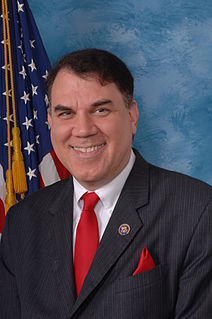A Quote by John Kenneth Galbraith
To see economic policy as a problem of choice between rival ideologies is the greatest error of our time.
Related Quotes
we ought to realize by now (see Korea, see Vietnam, see Afghanistan, see Iraq, see Iran) that deploying the US military, or dealing billions of dollars a year of arms to our ally of the moment that can serve as a regional rival to our enemy of the moment, is not always the best way to make threats go away. Our military and weapons prowess is a fantastic and perfectly weighted hammer, but that doesn't make every international problem a nail.
Our options oftentimes on foreign policy are not a choice between a good one and a bad one. It's a choice between two less-than-ideal options. And you're trying to figure out which is the least harmful of the two. And I think that's something we should be encouraged by, not something that we should be critical of.
Clipper took a relatively simple problem, encryption between two phones, and turned it into a much more complex problem, encryption between two phones but that can be decrypted by the government under certain conditions and, by making the problem that complicated, that made it very easy for subtle flaws to slip by unnoticed. I think it demonstrated that this problem is not just a tough public policy problem, but it's also a tough technical problem.
I see the war problem as an economic problem, a business problem, a cultural problem, an educational problem - everything but a military problem. There's no military solution. There is a business solution - and the sooner we can provide jobs, not with our money, but the United States has to provide the framework.
As the wealthiest country with all the blessings that we have, do we have an obligation to help the outside world? I think we do, as we have an obligation to help everyone within our own borders. The problem is that this automatically gets translated into: "What's the point of having a huge military if we can't bomb people?" That's the problem that I have. Our foreign policy is essentially our defense policy.
In particular, I argue that in both evolution and creation we have rival religious responses to a crisis of faith-rival stories of origins, rival judgments about he meaning of human life, rival sets of moral dictates, and above all what theologians call rival eschatologies-pictures of the future and of what lies ahead for humankind.



































